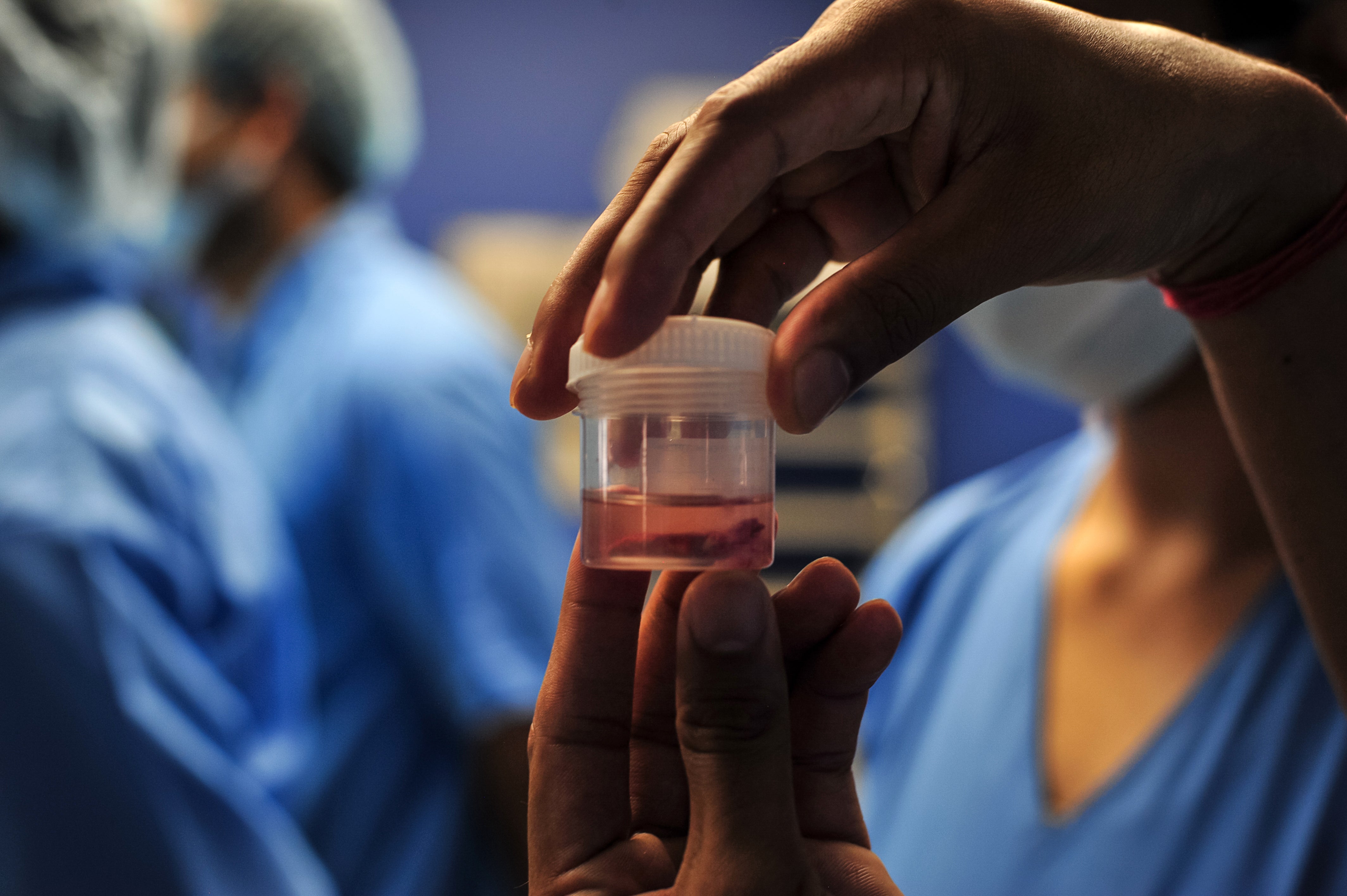Potentially deadly ‘black fungus’ found in some Covid patients in Oman
The Covid-linked fungal infection can be fatal and permanently disfiguring

Your support helps us to tell the story
From reproductive rights to climate change to Big Tech, The Independent is on the ground when the story is developing. Whether it's investigating the financials of Elon Musk's pro-Trump PAC or producing our latest documentary, 'The A Word', which shines a light on the American women fighting for reproductive rights, we know how important it is to parse out the facts from the messaging.
At such a critical moment in US history, we need reporters on the ground. Your donation allows us to keep sending journalists to speak to both sides of the story.
The Independent is trusted by Americans across the entire political spectrum. And unlike many other quality news outlets, we choose not to lock Americans out of our reporting and analysis with paywalls. We believe quality journalism should be available to everyone, paid for by those who can afford it.
Your support makes all the difference.A potentially life-threatening fungal infection has been detected in some Covid-19 patients in Oman, according to Omani authorities.
Doctors have reported three coronavirus patients in Oman that have become infected with mucormycosis, a condition commonly known as “black fungus”, the country’s health ministry said.
Mucormycosis is caused by a group of moulds called “mucormycetes” that are present in the air and cause complications in those with acute illnesses such as severe Covid, or in people with compromised immunity.
According to doctors, once inhaled the infection in such patients could spread into the sinus cavities, lungs, and chest cavities.
Some of the signs and symptoms of the fungal infection include persistent pain and headaches caused when the fungus infects sinus cavities and nerves.
It is the first known cases of mucormycosis on the Arabian Peninsula, having previously been reported in India where it has claimed hundreds of lives and infected thousands of Covid-19 patients.
The fungus is believed to be more dangerous for those who have weakened immune systems, including diabetes patients and those who are taking steroids for a long period of time – one of the treatments for severe Covid cases, Indian health officials have warned.
If not detected early enough, the disease that can spread to the nose, eyes, jaw bone and even brain and require amputation of the affected body parts.
Doctors have previously told The Independent mucormycosis can be induced in Covid patients by the overuse of steroids, used generally to treat those who are critically ill. It is also more likely to affect those who are otherwise severely immunocompromised.
Although the condition is relatively rare, the infection has alarmed Omani authorities who are facing a surge in Covid-19 infections in the country.
Earlier this week Omani health officials warned there was an acute shortage of hospital beds amid the spread of highly transmissible coronavirus variants, a lagging vaccine rollout and relaxed movement restrictions.
In the past month, cases in the country have more than tripled, with authorities recording over 2,000 new cases and 33 deaths on Tuesday. Recent weeks have also seen record highs in severe and critical cases, with overwhelmed hospitals forced to turn away patients.
Just 8.5% of Oman’s roughly 5 million people have received at least one dose of a Covid-19 vaccine.
To date, Oman has recorded more than 236,440 coronavirus cases, including 2,532 deaths, according to data by Johns Hopkins University.
Join our commenting forum
Join thought-provoking conversations, follow other Independent readers and see their replies
Comments